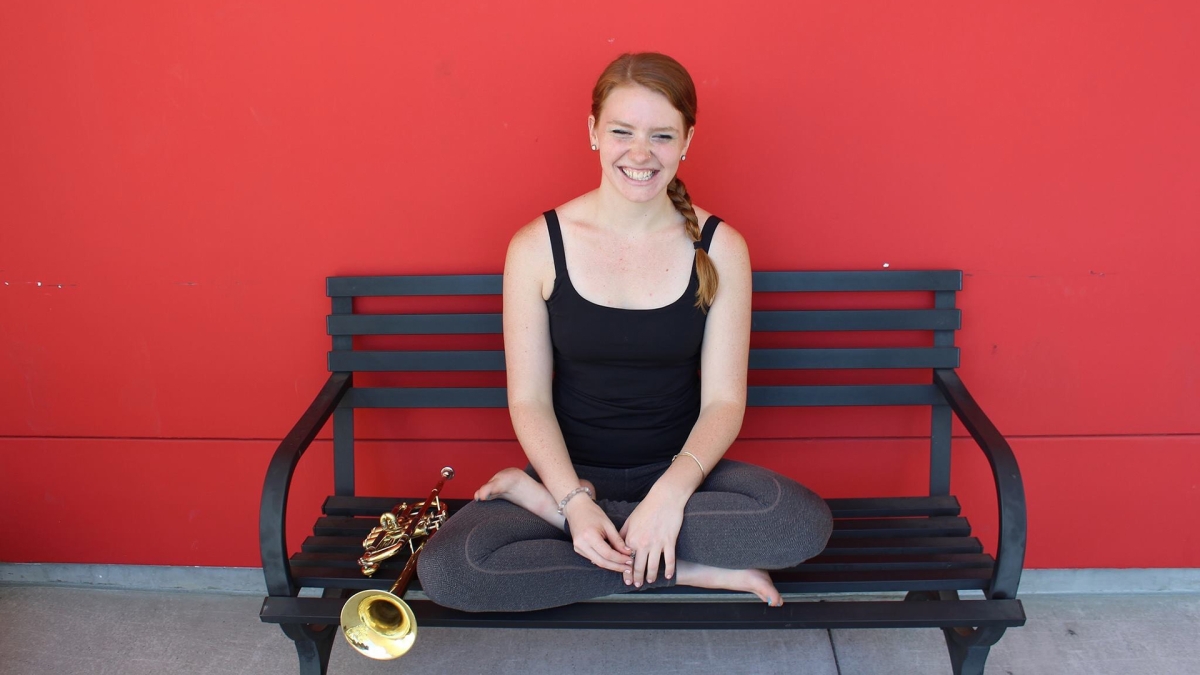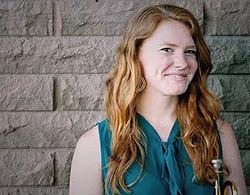ASU music student taps ancient tradition to create preventive health regime for musicians

Brianne Borden
Brianne Borden, DMA graduate student in music performance, has experienced firsthand the rigors of pursuing a career as a professional musician — from debilitating performance anxiety to repetitive motion injuries. Borden drew on the ancient tradition of yoga to overcome her health issues and developed a program to help prevent these types of problems from occurring — Yoga for Musicians.
“Musicians are often perfectionists who are immersed in a highly competitive and physically demanding environment,” said Borden. “At some point in their professional career, all musicians face performance anxiety or nervousness and most musicians also face physical injuries.”
The techniques available for addressing these issues are often "after the fact" solutions, such as seeing a physical therapist, rather than preventing an injury. Borden’s goal is to prevent the issue before it happens, so she became a certified yoga instructor and developed a program specifically for musicians.
Borden was introduced to yoga in her teens by her mother and attended classes for several years. She abandoned the practice in college as she felt her time was better spent in the practice room. With the increased practice time and an already existent tendency toward anxiety, she developed several repetitive injuries and was terrified every time she stood onstage. On the advice of her physical therapist, her mother and her trumpet professor, she started attending yoga classes regularly. Borden said within the year, the results were obvious — her injuries were no longer an issue and her confidence increased every time she performed.

She said that when someone practices yoga, they often practice one or two different forms of yoga exclusively. In her Yoga for Musicians program, Borden used her academic research along with her training and learnings from multiple different forms of yoga — vinyasa, yin, Iyengar, hot, kundalini, meditation — to determine which parts of these practices and traditions are beneficial to the main struggles a musician faces.
Her program focuses specifically on foundational posture, breath work, coping and warding against performance anxiety and preventing repetitive-motion injuries. She intentionally explains the reasoning behind each exercise or pose and suggests times applicable to a musician when they could practice it. Examples include practicing alternate nostril breathing prior to a nerve-inducing performance or practicing a few rounds of Sun Salutations before warming up on an instrument.
Borden said students are extremely engaged when she presents her yoga clinic at universities or conferences as she tries to make the experience relatable so every attendee benefits. She prefers that students bring their instruments to experience the immediate differences that some of the exercises make. Students are also instructed to keep journals to track their progress and note which poses and exercises resonated best with what they need for their musicianship.
“I have had multiple students contact me weeks or months after attending a session of mine, and share with me the changes they've seen in their playing and the positive impact of practicing yoga,” said Borden.
Learn more at Borden's website, brianneborden.com. She presented her Yoga for Musicians program at the 2017 International Trumpet Guild (ITG) Conference in Hershey, Pennsylvania, on June 2. She also presented a similar program at the 2016 ITG Conference in Anaheim, California. She has been invited to numerous colleges and universities to present clinics to music students.
More Health and medicine
New Indigenous health dashboard offers robust database for scholars
By Nicole Greason and Kimberly Linn A team at Arizona State University’s College of Health Solutions and …
College of Health Solutions program doing its part during Salute to Service
It wasn’t always easy for Marine veteran Chuck Hale when he first returned to civilian life. But he’ll never forget the help he…

What makes human culture unique?
Why is human culture — the shared body of knowledge passed down across generations — so much more powerful than animal cultures?“…